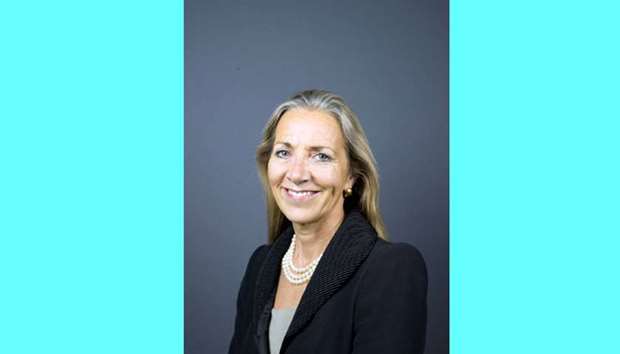Speaking to Gulf Times, Baroness Fairhead, Minister of State for Trade and Export Promotion at the Department for International Trade (DIT), noted that in the 12 months to end October 2017, UK exports to Qatar increased by 21.9% compared to the same period in the previous year. Commenting on the positive growth, she said: “This increase highlights the strength of demand for UK goods in Qatar and underlines the world-leading quality of British products.”
She added: “The Department for International Trade will work to increase exports between the UK and Qatar even further to the mutual economic benefit of both countries.”
The top 5 UK goods exported to Qatar in 2016 were machinery and mechanical appliances (43.7% of all UK goods exported to Qatar), precious stones and metals (21.9%), vehicles, other than railway or tramway stock (6.6%), electrical machinery and equipment (4.7%) and aircraft, spacecraft, and parts thereof (4.3%).
In 2016, there were around 4,340 UK VAT-registered businesses exporting goods to Qatar worth around £1.8bn and 484 UK VAT-registered businesses importing goods from Qatar worth around £1.9bn.
An example of a company with a strong trading relationship with Qatar is RGL Electronics Ltd. Exports to the Gulf are key to the growth of the Wolverhampton based company which manufactures and supplies Access Control products such as Exit Devices, Electronic Locking and Power Supplies.
RGL, founded in 1999, began exporting to Qatar in 2012 and has subsequently worked on high profile projects for the Coast Guard, the Arab Centre for Engineering Studies, the Aspire Academy (Doha Sports Centre), and the Hamad General Hospital Trauma and Emergency Department.
The firm’s export success has been down to their strong focus on relationship building with key decision makers within Qatar. Sales director Geoff Jones commented: “The development of strong professional relationships is the key to successfully integrating your business into the Qatar supply chain. As with all long-haul exporting, developing business relationships in the first place is the major barrier to success. In our view, this cannot be done over the phone — you need to go to market, through a trade mission or market visit, to begin building the network needed to achieve export success. The same is true when maintaining existing relationships in the region — you need to be in-country regularly offering sales support and promoting your company brand.”
This approach has proved successful with 2017 the best year for exporting in the company’s history. The year also saw exports to the Middle East representing a larger proportion of total exports than exports to Europe, highlighting the importance of the region as a whole. Speaking about the company’s future in the region, Geoff added: “Following our record-breaking year, we are optimistic that our trade with Qatar and the other Gulf States will continue to grow. The market remains a key target for RGL and we are particularly excited about opportunities in our sector around the development of the Qatar World Cup infrastructure.”
RGL has worked closely with a DIT’s Midlands based international trade adviser (ITA) since they first began their journey on a DIT trade mission seven years ago. The ITA has provided ongoing one-to-one support with frequent contact to help develop RGL’s export strategy and increase their exporting effectiveness.

